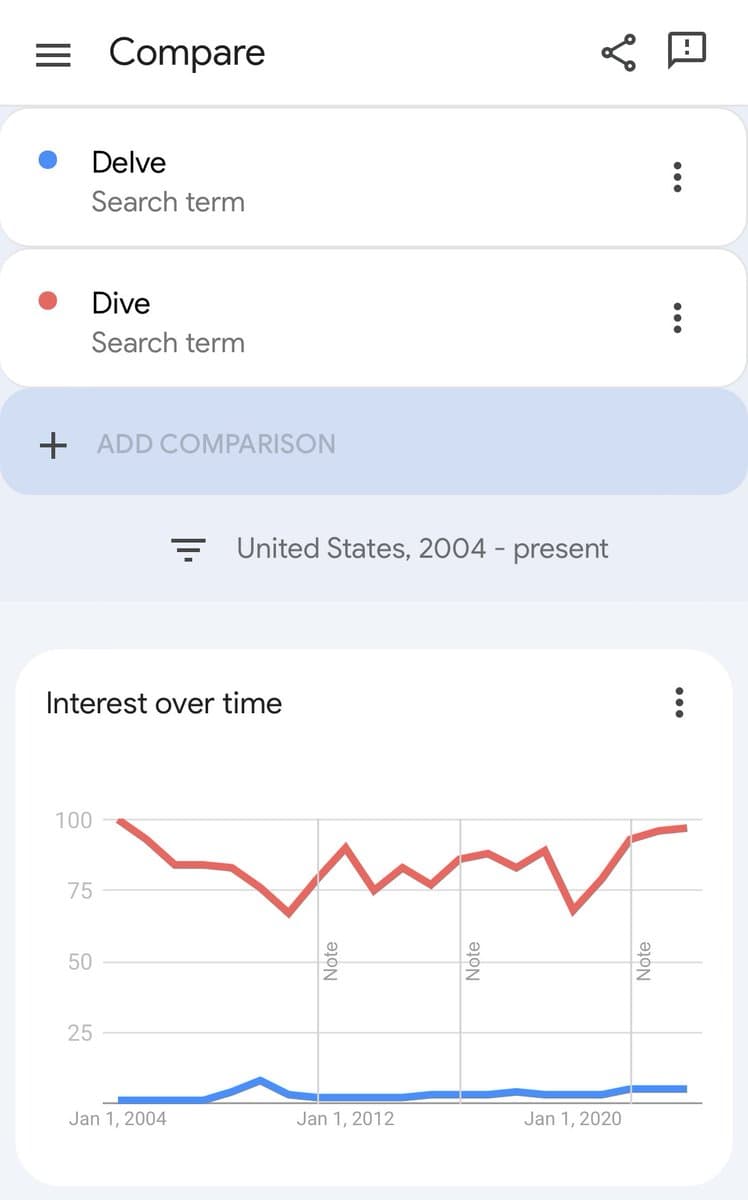🧵 View Thread
🧵 Thread (19 tweets)

Apropos the recent controversy: the word delve is rarely used in English. Except used by LLMs, and in formal register Nigerian English. https://t.co/izRMkRfS8h


There has been a long trend in American culture against the formal register, it sounds pompous and ridiculous today. We have had a mass movement against the formal over the past 100 years (hoodies over suits, formal etiquette is dead, death of formal address like sir/maam).

Based on my limited understanding this impulse to the egalitarian and casual has not been mirrored globally in all English speaking countries, where the formal register is still considered polite/respectful in appropriate contexts.

So it’s not so much about American vs Nigerian vocabulary generally here, as it is a debate as to whether a formal register is a good idea. I want to make the case that the death of the formal register is a good thing, and in general we should expect it to spread.

The formal version of a language can be identified bc it has more rigid rules. The higher rigidity is important bc it is more effortful to use, but correct use means fewer opportunities to make mistakes. In effect, it replaces substance with form.

Why would you want to replace substance with form? Bc if saying something “wrong” means losing status or being seen as disrespectful by authority, having to get substance correct is *terrifying*. Substance is hard. You cannot consistently always be right.

Formal manners and language are like the brown M&M’s Van Halen rider…if you can’t get this small visible rule following thing right, you might be violating the rules in sneakier ways. So formality is generally a test of conformity.

But we value conformity less today and for good reason. In the modern world, variance is important and should be rewarded because it’s the source of most new good things. We want to judge people on their substance, not their conformity.

Incidentally I think it’s no accident LLMs grabbed a word from formal Nigerian English…they speak in overly formal English broadly, so I bet they picked up on the formality of it and they don’t have the culturally context sensitivity to realize it sounds weird in American.